Imagine this: You’ve just stepped off the plane after coming to Korea to ramp up your Korean skills in a short span of time. You have access to Korean speakers everywhere, and you have as much time as you need.
Challenge: How do you go about learning Korean in the most efficient way possible?
Time to learn Korean!
It may seem like an obvious answer: study hard and get lots of practice of course! Right? But if you followed the advice of most, it probably wouldn’t take you as far as you’d hoped.
The internet is filled with lots of misguided advice on language learning. A lot of the mistakes you’re making are most likely blind ones that Koreans are too kind to point out. Sometimes you just need to cut straight through the clutter and go straight to the source in order to get genuine advice.
With this in mind, we got in touch with some of the world’s leading Korean scholars, speakers, authors, bloggers and television stars and asked them the question:
“What are the most common mistakes students make when learning Korean? (OR what are the biggest misconceptions people have about the Korean language)?”
We simply wanted to know which blunders students should avoid so they can cut down their learning curve and learn Korean in the most efficient manner possible.
Time to bring in the experts:
“The most common mistake I see from those who are learning Korean is the improper conjugation of noun modifying verbs and adjectives. Adjectives that modify a noun, without reference to tense, should end with ㄴ where as verbs should end with 는. Some people confuse this as the past-tense verbal modification of a noun would which to ㄴ as well. Consequently, a lot of people wind up conjugating their verbs, on accident, like adjectives and conjugating their adjectives like nouns. It is not a problem of understanding – Koreans will not correct you on this. However, it is a very evident error and speakers who do not properly conjugate will be viewed as not having good Korean.
For example, I have heard many people use the word 필요하다 the wrong way. They would say 필요하는 정보 instead of 필요한 정보. Much less often do I hear the case of conjugating a verb like an adjective such as 원한 정보 instead of 원하는 정보. However, it is this type of small error that I hear the most often and tends to make speakers sound like they are struggling with the language, when they’re really not having much difficulty. Many advanced speakers also make this mistake. I believe to a Korean it would sound much the same as dropping and misusing “the”, “a”, “an” etc. does to us in English.”
Why to Follow Tyler Rasch
Tyler is a television personality in Korea and starred on the immensely popular Korean panel discussion show 비정상회담 (Non-Summit) where he debated and discussed issues in Korean and became well-known for his widespread knowledge on many topics. Tyler is fluent in six languages and studied Korean at the Seoul National University Language Education Center and co-ed program at Ehwa University. He went on to receive a Masters in Political Science from SNU where he also started Seoulism, a weekly webzine that aims to increase cross-cultural communication and improve the Korean language skills of international students in Korea. He now stars on Korean talk show 뇌섹시대 – 문제적남자 (Hot Brain: Problematic Men) and guest stars on many others, while also modeling for brands like Yoplait and Subway. Be sure to follow him on Twitter @tylerrasch and Instagram @tyleroninsta.
Speakers who do not properly conjugate will be viewed as not having good Korean -Tyler Rasch @tylerrasch
Click To Tweet
“One of the biggest mistakes most people make is formality levels. Most learners use very formal Korean (ex: -입니까? / 입니다) when they first start learning, while no one in Korea really speaks like that on a regular basis. This is because Korean teachers want students to learn the most respectful levels first, which is always safer than being too casual of course. :)”
Why to Follow Keith Kim
Keith is a Korean-American blogger living in Seoul and working on the immensely popular seoulistic.com Korean travel and culture website. Additionally, he hosts Talk to Me in Korean’s [Real English] lessons and co-authored the book Survival Korean with the team at TTMIK. He even appeared in a recent Vice documentary about some of the more fun aspects of Korean culture (hint: soju)! He works on his personal blog at gyopokeith.com. You can find him on Twitter @gyopokeith and @seoulistic.
Most learners use very formal Korean when they first start learning -Keith Kim @gyopokeith
Click To Tweet
“I think there are 3 common mistakes that Korean learners make. One is word order – most beginners are fine constructing short, simple sentences, but as sentences get longer the word order becomes more important. Another is properly using particles – specifically the topic marker and subject marker, but also knowing what particles to use with each grammar form. And above all, the most important mistake is using politeness levels – knowing when to use casual speech, when to not, and when to use honorifics. Fortunately, with practice and good lessons, anyone can pass these hurdles.”
Why to Follow Billy Go
Billy is an American who has been studying Korean since 2005, and he teaches Korean online along with his trusty sidekick Keykat through his fun lessons on his website at gobillykorean.com and on his YouTube channel. He originally got his B.A. in Korean and has been working as a Korean translator since 2008. He’s since published two books in his critically acclaimed series Korean Made Simple. After living in Korea for a few years, he now calls the States home but still travels back often and makes amazingly interesting YouTube videos when he does! Find him on Twitter @gobillykorean.
The most important mistake is using politeness levels -Billy Go @gobillykorean
Click To Tweet
“Thinking that if they go to Korea for a couple years to teach English, they will master Korean, when in fact teaching English in Korea and learning Korean to a high level are mutually incompatible objectives. English language education is the enemy if one really wants to master Korean. Second common mistake: thinking that Chinese characters are irrelevant to mastering Korean to a high level.”
Why to Follow Dr. King
Ross King received his PhD in Linguistics from Harvard University and his BA from Yale University (Japanese and Korean) before taking on his current positions as a Professor and Head of the Asian Studies Department at the University of British Columbia and founder and Dean emeritus of the Korean Language Village at Concordia Language Villages. He also co-authored the book which is widely considered to be the gold standard in Korean education, Elementary Korean, along with Continuing Korean and several others in the series. Dr. King also developed the extensive online teaching and learning resources for Korean and other Asian languages in UBC’s Asian Studies Department, which you can read more about at korean.arts.ubc.ca. Advanced students should also check out the program at the IUC for Korean Studies at Sungkyunkwan University in Seoul, where Dr. King is now on the executive board.
Teaching English and learning Korean to a high level are mutually incompatible objectives -Dr. Ross King
Click To Tweet
“Since we make many graphics with simple vocabulary words, one of the biggest misconceptions we see involves the use of the romanization of Korean words. People often ask us to include it within our posts. While it can be helpful at times (and we usually include the romanization in all of our graphics), we try to stress often that the pronunciation of Korean words would be much better by learning how to read the Hangul alphabet and becoming familiar with it. But a lot of people are intimidated by it.”
Why to Follow Dom & Hyo
Dominic (Dom) and girlfriend Hyo run an extremely popular webtoon and blog about their life in Korea at domandhyo.com. Originally from Detroit, Dom first came to Korea in 2009 with a background in graphic design, and started the site after forming a relationship with his now-girlfriend to comically portray their new life together, but it quickly turned into much more. Now the site serves as a one-stop shop for expats in Korea to get information about living in Korea, learning Korean and getting their daily dose of entertainment (picking up new Korean vocabulary words along the way)! Follow them on Facebook and be sure to check out their helpful Korean learning tools at domandhyostore.com.
Korean Pronunciation improves by learning how to read the Hangul alphabet -Dom and Hyo @domhyo
Click To Tweet
“On the first day of every Korean elementary class, I ask questions regarding students’ perception of Korean. Most students assume that Korean people use Chinese characters for writing. They are not aware of the existence of the Korean writing system, Hankul, which is a scientific alphabet based on the phonological analysis of Korean sound patterns. Once they learn the Korean alphabet, they are amazed by how easy it is to read.“
Why to Follow Dr. Daniel
Dr. Jiyoung Daniel (B.A., PhD in Linguistics) is a Korean Professor at the University of North Georgia, where she teaches all different levels of Korean in addition to specialized classes. Originally insured by her father to teach, Dr. Daniel now considers herself a “civic ambassador” for Korea and the Korean language and helps build cross-cultural relationships in her mission to help Korean spread both on the UNG campus and worldwide. She also assists in the school’s Study Abroad program in partnership with Sogang University in Korea, where she helps exchange students from integrate into the new culture in the US. Be sure to check out the University of North Georgia’s Korean Program on Facebook and help support Dr. Daniel’s admirable mission to bridge the gap between cultures.
Once they learn the Korean alphabet, they are amazed by how easy it is to read -Dr. Jiyoung Daniel
Click To Tweet
“I think the most common mistakes students make come early in learning the Korean language. We naturally take what we know about our mother tongue or what we’ve been taught about other languages and apply it across the board. Korean, as well as some other Asian languages, are unique in that the tactics going into learning them are quite different from other language families. Easy concepts like learning conjugation tables (I am, you are, she is, etc.) or numbers are simply not the same in Korean as in other languages. However, if students can wrap their minds around these new grammar concepts, they will have a much easier route in mastering the Korean language.”
Why to Follow Brian Van Hise
Brian runs Stompy Ruffers Cultural Fusion, a non-profit organization in Korea that runs community events and does charity work in its effort to help “fuse” Korean and American culture. Apart from their incredibly popular events like the Great Seoul Treasure Hunt, they also create some amazing fusion bingsu which was featured by KBS Deagu on their prime-time segment 행복한결 오늘. He also works as Editor-in-Chief at the Daegu Compass, a publication that acts to provide information for foreign readers living in Daegu and all across Korea. Be sure to check out their popular Korean culture videos on their YouTube channel and say hi on Facebook.
The most common mistakes students make come early in learning the Korean language -Brian Van Hise @stompyruffers
Click To Tweet
“One of the most widespread misunderstandings with respect to Hangul would be that Hangul is phonetic, i.e. it matches the sounds that are represented. Certainly Hangul is more phonetic than English orthography is. However, it is much less phonetic compared to Spanish or German spelling. For example, 독립, which means independence, is pronounced /동닙/. This is because the current Hangul orthography is based on the principle that morphemes, the smallest meaning-bearing units, should retain their shape. Then is it hard to learn Hangul orthography? It could be. However, actually the current principle makes reading much easier.”
Why to Follow Kyubyong Park
Kyubyong Park received his B.A. in Korean Language and Literature at Seoul National University. He worked as an editor at an educational publishing company before going back into academia where he received his M.A. in Linguistics from the University of Hawaii. He is the author of many highly acclaimed Korean learning textbooks including Korean for Beginners: Mastering Conversational Korean and 500 Basic Korean Verbs. You can see a full list of his books and find out more about him on Amazon through his author page.
One of the most widespread misunderstandings with respect to Hangul is that Hangul is phonetic -Kyubyong Park
Click To Tweet
…and now for a bonus!
Most Common Korean Mistakes (as voted by 134 past 90 Day Korean students!)
#1 Particles (46 votes)
#2 Formal speech (33 votes)
#3 Relying on romanization (21 votes)
#4 Conjugation (12 votes)
#5 Word order (11 votes)
After graduating from our advanced module, we asked past students to vote on the mistakes that they themselves used to make when they were beginner Korean learners. Above are the top 5 results!
So that brings us back to the imaginary scenario where we’re first hopping off the plane in Korea. 24 hours before you boarded the plane, you probably had a picture of how things would pan out in your head.
But once you stepped off that plane and you were a month into your studies, reality sunk in.
With these tips from the experts, you can now prepare yourself and gain a competitive advantage. Factor in the most common mistakes as you go about your studies and speak Korean like the pros from 비정상 회담.
However, be prepared to face certain obstacles on your Korean language learning journey. Doctor Ross King warned that “teaching English in Korea and learning Korean to a high level are mutually incompatible objectives.”
Perhaps that’s why Tyler Rasch – subjectively the best Korean speaker out of the group of foreign men from the hit TV show 비정상 회담. — advises that you come in with clear expectations about Korean practice in Korea.
As Tyler advises:
“A quick comment on learning Korean in Korea. It’s probably the best way to do it. However, the difficulty is maintaining motivation and persevering through the largest obstacle to learning – Koreans’ emphatic and persistent use of English. Mostly, they will use it for one of two reasons. As many folks tend to notice, Koreans often insist on speaking English with foreigners in order to practice (note there used to be articles in Korean newspapers in the late nineties insisting on Koreans trying to practice with foreigners, that culture still remains). However, stronger and more difficult to overcome is the second reason for their persistent English use – politesse. They consider speaking English to foreigners to be – and often justify their persistence of English when criticized for overuse as – an attempt to be considerate for the interlocutor given that most foreigners will not understand Korean. So, it can be very difficult to get around persistent English speakers politely. However, I would recommend being equally persistent with Korean, lots of smiling, and perhaps the occasional direct comment about wanting to learn Korean – not about their overuse of English.”
Coming from a man who learned Korean in Korea himself, we think we’ll take his advice!
Many thanks to all the experts who contributed to this article:
1. Tyler Rasch
2. Keith Kim
3. Billy Go
5. Dom & Hyo
Are there any other questions you’d like to ask our panel? Any other common mistakes that you find yourself making? Share in the comments below!
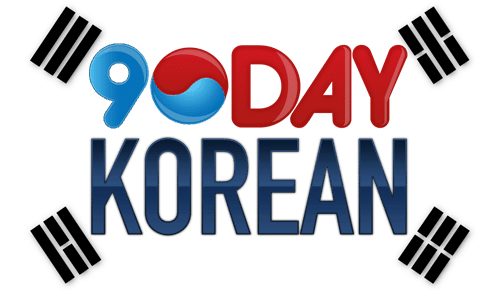 Learn to read Korean and be having simple conversations, taking taxis and ordering in Korean within a week with our FREE Hangeul Hacks series: http://www.90DayKorean.com/learn
Learn to read Korean and be having simple conversations, taking taxis and ordering in Korean within a week with our FREE Hangeul Hacks series: http://www.90DayKorean.com/learn
Korean lessons * Korean Phrases * Korean Vocabulary * Learn Korean * Learn Korean alphabet * Learn Korean fast * Motivation * Study Korean


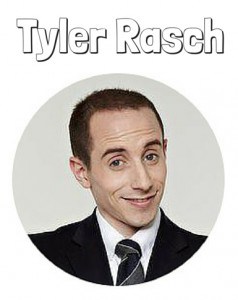
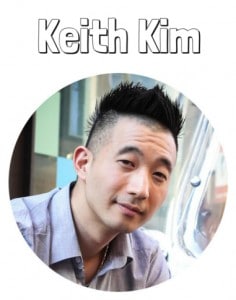


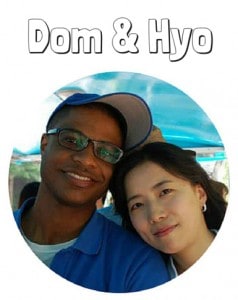
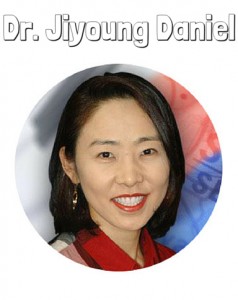

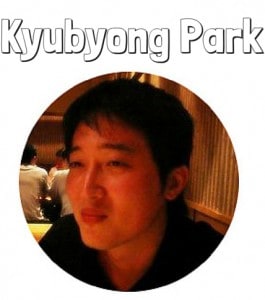

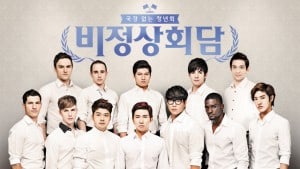
Recent comments